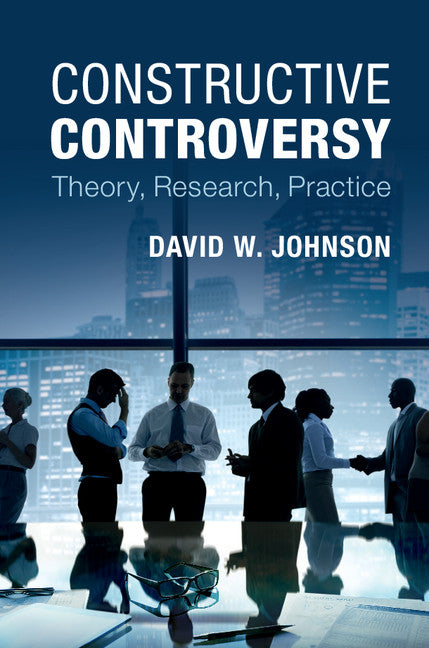Freshly Printed - allow 8 days lead
Couldn't load pickup availability
Constructive Controversy
Theory, Research, Practice
Using the social psychological theory of 'constructive controversy', this book analyses the nature of disagreement among members of decision-making groups.
David W. Johnson (Author)
9781107089815, Cambridge University Press
Hardback, published 18 June 2015
255 pages, 6 b/w illus. 5 tables
23.5 x 15.9 x 1.7 cm, 0.49 kg
'One could use Constructive Controversy as a jumping-off point to motivate students by engaging in real-life problems and branching out to the fundamentals of why and how the process works and how the desired outcomes are affected by the nature of the process that is used to engage people. Along the way are opportunities for students to discover for themselves aspects of cognition, human development, and the psychology of emotion.' PsychCRITIQUES
Why do people make decisions based on their own perspective without considering alternative points of view? Do differences of opinion enhance or obstruct critical thinking? Is it wise to seek out people who disagree with you and listen to their objections to your conclusions? Focusing on the theory, research, and application of constructive controversy, this book analyses the nature of disagreement among members of decision-making groups, project teams, academic study groups, and other groups that are involved in solving problems. Johnson demonstrates that this theory is one of the most effective methods of enhancing creativity and innovation, decision making, teaching, and political discourse. The book includes entertaining and intriguing examples of how constructive controversy has been used in a variety of historical periods to advance creativity, achieve innovations, and guide democracies. It will be welcomed by students in the fields of social psychology, management/business studies, education, and communication studies.
1. Need for constructive controversy?
2. The nature of constructive controversy
3. Theory of constructive controversy
4. The processes of constructive controversy and concurrence seeking
5. The outcomes of constructive controversy
6. Conditions mediating the effects of constructive controversy
7. Constructive controversy and decision making
8. Constructive controversy in education
9. Constructive controversy and political discourse in democracies
10. Constructive controversy, creativity, and innovation
11. Constructive controversy and building and maintaining peace
12. Conclusions.
Subject Areas: Educational psychology [JNC], Social, group or collective psychology [JMH], Psychology [JM]


